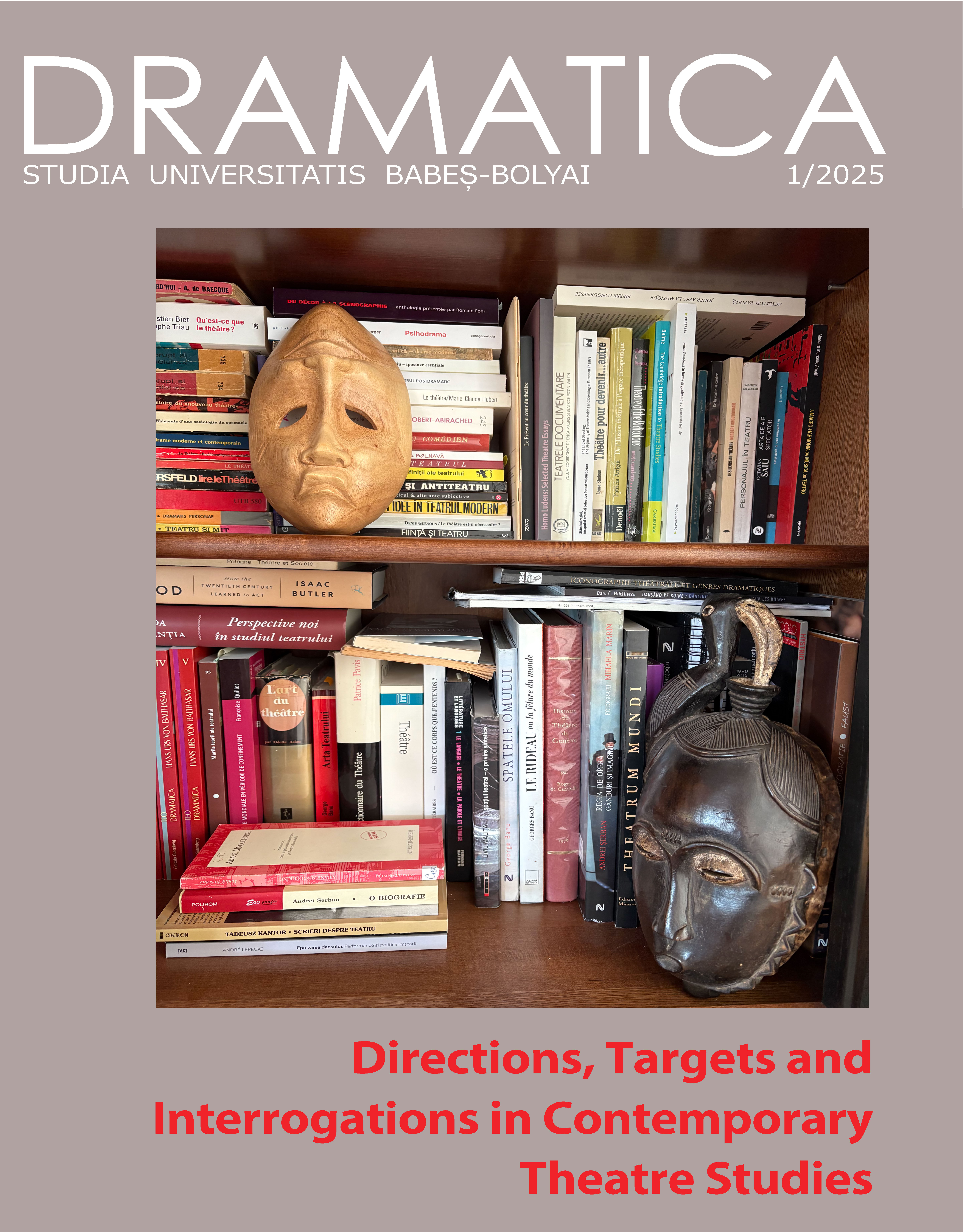The Avatars of Trauma in Art. Anca Hațiegan, Ciulei și spectrul tatălui. O psihobiografie, București, Editura Litera, 2024
Abstract
Without a doubt, the volume Ciulei și spectrul tatălui (Ciulei and the Specter of the Father), subtitled A Psychobiography and published in 2024 by Litera Publishing House in the Perspektiv collection, stands out as a landmark editorial release in the field of dramatic arts in Romania. This is not only because it recalibrates the public image of one of the most prolific Romanian theatre figures of recent history, but especially because the author displays a filigree-like meticulousness, capturing the facets and nuances of a Renaissance-like personality in a complex lacework full of revelatory beauty and rough edges. Anca Hațiegan takes on a courageous epistemic mission by openly embracing and rehabilitating biographism – a method she knows entails the risk of fictionalizing speculation. Yet, the success is all the more remarkable as the final product maintains a flawless balance between scientific rigor and the almost novelistic suspense of the actual reconstruction. Thus, a rare feat for a scholarly book, The Specter of the Father becomes a fascinating read both for the researcher or theatre professional used to thorough documentation, and for the more casual reader seeking a literary interlude in daily routine. Beyond these elements, the book also serves as a valuable theatre studies tool, not only because of the vast and well-founded information it contains, but especially due to the analytical model it proposes. This model hones the reader’s observational skills and axiological instincts beyond the narrow domain of aesthetics. There is, however, a secondary, though not accidental, dimension to this research: the portrayal of an era, with its oppressive atmosphere and the anticipatory effervescence typical of turning points or transitional periods. The specific case of the Ciulley family, though not necessarily representative or typical of interwar or postwar Romanian society, reflects in mirror shards a broader historical context, which can be reconstructed in the background of an otherwise exceptional story. The public uproar around the homicide trial involving the father of the future theatre man – the newspaper reports, the petty satisfaction of the public in trampling through the tabloid press into the intimacy of a family on the brink of dissolution – did not occur in a vacuum. On the contrary, they resulted from a tangible social tension and extended a collective mindset in search of escapist diversions. Similarly, Liviu Ciulei’s artistic destiny unfolds against a backdrop of collective trauma and constant ideological pressure. By tracing the persecutions endured by the director-actor-scenographer, Hațiegan’s reconstruction naturally leaps from personal biography to a larger historical perspective.
Downloads
Published
How to Cite
Issue
Section
License
Copyright (c) 2025 Studia Universitatis Babeș-Bolyai Dramatica

This work is licensed under a Creative Commons Attribution-NonCommercial-NoDerivatives 4.0 International License.


